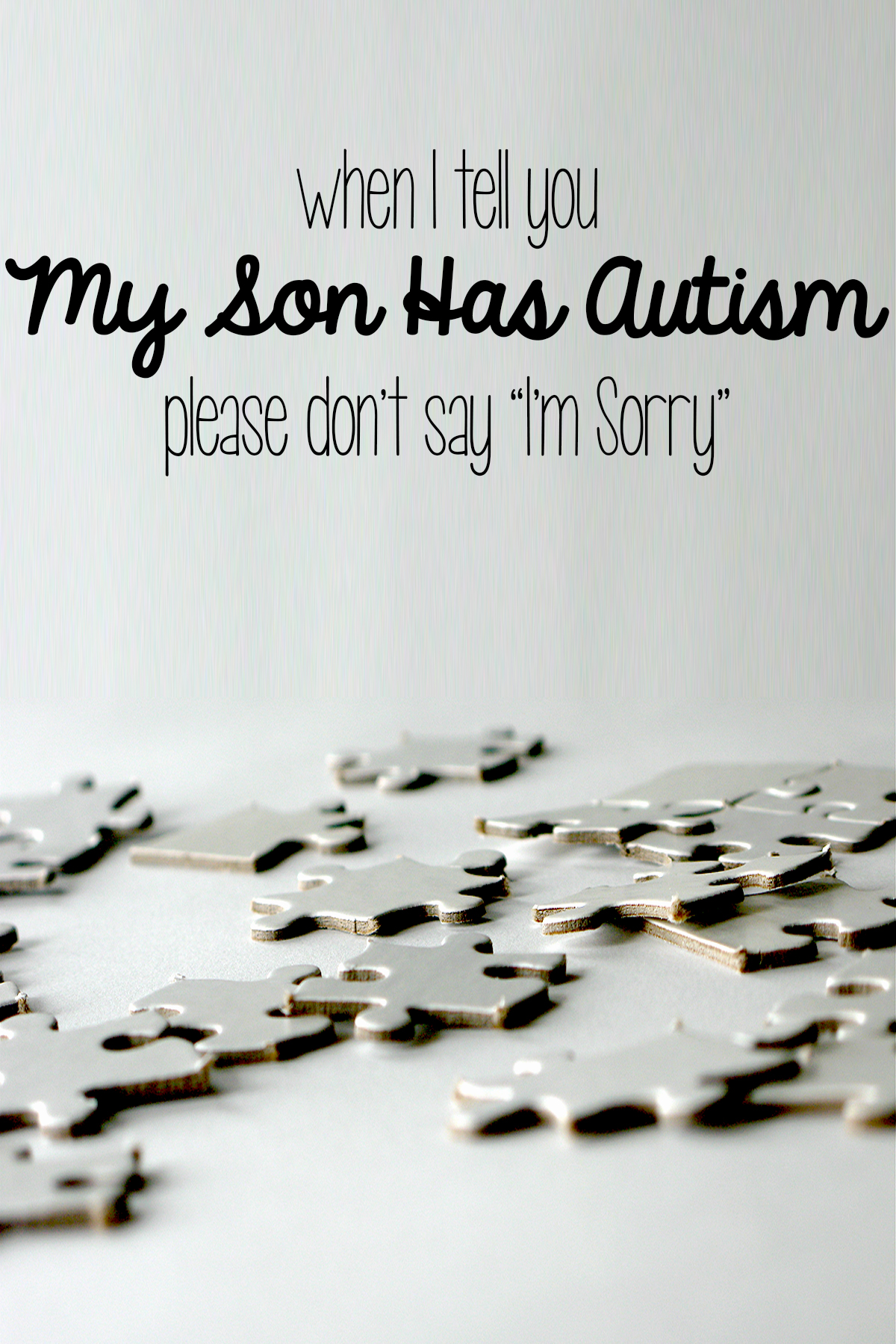
I know we’ve all been trained to look at Autism as a bad thing. We’ve been taught that it’s a disorder, simply because it says “disorder” in the name… Autism Spectrum Disorder. So I can’t fault you for saying “I’m sorry,” when I let you know that my son was diagnosed with an Autism Spectrum Disorder.
I also understand why you might be inclined to say “Well, he doesn’t act autistic.” I even understand you saying “Don’t kids with aspergers have to be like… really smart?” We’ve all heard various stereotypes about Autism Spectrum Disorders. Chances are, since about 1 in 68 children are on the Autism Spectrum, you’ve even seen and interacted with children who are on varying degrees of the spectrum (even if you haven’t realized it).
So here’s the deal. No, I didn’t cry when my son was diagnosed with an Autism Spectrum Disorder. I don’t feel that I need an “I’m sorry” because I see this as a blessing.
My son has so many amazing talents– he’s incredibly musical. By age 4, he could count to 100, and now can count even higher, independently. He is starting to read. He has an eye for puzzles. He knows all of the States in the US.
In many ways, my son’s ASD makes him who he is. I wouldn’t wish him to be neurotypical, especially if it meant stripping him of some of these unique talents and gifts.
For me, apologizing when you hear my son has an Autism Spectrum Disorder is like apologizing that my son is my son, all of his gifts and flaws included. That’s a part of him. Some days, it’s a challenge. Some days, when he’s in the midst of a meltdown and isn’t responding verbally and is plugging his ears because the sound of rain is just too loud for him, I pray for strength. So no, it’s not all rainbows and sunshine and joy that my son is nonneurotypical… but it’s part of who he is.
Several people that I informed of my son’s diagnosis (primarily his caregivers for school and relatives) were quick to say “Oh my gosh… did you cry? I’d be crying.” No. I didn’t cry. Having a word, a diagnosis… it doesn’t change my son at his core. My son was this amazing child when he was born, he was this amazing child when he was 2, and he was this amazing child the day before he was diagnosed. And he’s still this amazing child after the diagnosis.
Saying “I’m sorry,” or giving me sympathy when I say my son has an Autism Spectrum Disorder is understandable… I get it. Before he was diagnosed, I may have said the same thing to another mom. But my son’s Autism diagnosis doesn’t deserve pity. My son is healthy. He’s happy. He has his days where things are stressful and hard and too loud and too overwhelming… and he has his days where everything is going to be just fine. And I wouldn’t ever want an apology for my son being the amazing son he is.
When I tell you my son has an Autism Spectrum Disorder, here’s what I’d rather you say:
“How do you feel about things?”
“Can you tell me more about Autism Spectrum Disorders? I’m not very familiar with them?”
If you’re one of my son’s caregivers– a teacher, a family member, perhaps ask
“Are there any changes being made to his care that I should know about?”
“How should I handle ______ situation?”
My son hasn’t changed. The only thing that is changing is how we respond to certain behaviors, like meltdowns, and how we plan to give him the best possible education in the future to make sure his needs and particular interests are being met and tapped into.
He’s the same kid my friends and family and his teacher have always known and interacted with– it isn’t like having a word for it changes who he is.
So when you say “I’m sorry,” you’re apologizing for:
-The answers we now have for why certain behaviors are present.
-The way my son was created– with purpose and a completely brilliant mind.
I welcome questions. I welcome you seeking insight into how, if at all, this changes his care. What I don’t want is pity, because it hasn’t changed anything. If you met my son before his diagnosis, you’ve met him after, too– he never changed a bit.
But please… please don’t say you’re sorry.




